
Reasonably Speaking
The American Law Institute
The law affects our lives and our society in many unique and profound ways. Reasonably Speaking, produced by The American Law Institute, features interviews with legal experts on some of the most important legal topics of our time. Each episode takes you through the law in action, beyond courtrooms and casebooks. Whether you are a legal scholar or a concerned citizen, this examination of the relationship between our laws and our society will leave you with a better understanding of how we got here and what we should consider as we forge ahead.
- 1 hour 35 secondsJudges Under Siege: Threats, Disinformation, and the Decline of Public Trust in the Judiciary
This episode addresses the alarming surge of attacks on judges and courts. These attacks range from threats and acts of physical violence to a corrosive rhetoric that undermines public confidence in the judiciary. While criticism of court decisions is a vital aspect of a healthy democracy, dismissing the courts as corrupt or illegitimate threatens the rule of law. ALI President David F. Levi moderates this discussion in which panelists share their perspectives on the increase in attacks on and unfair criticism of judges and propose solutions to protect judicial independence and uphold the integrity of our judicial system.
8 August 2024, 5:00 am - 57 minutes 7 secondsEmpowering Everyday Choices: A Conversation on Philip Howard's "Everyday Freedom"
Is America’s governing framework hindering our ability to make simple choices in daily life? In this episode of Reasonably Speaking, ALI President David F. Levi sits down with author and lawyer Philip Howard to discuss his new book, Everyday Freedom: Designing the Framework for a Flourishing Society.
They’re joined by Judge Edith Jones and Professor Nicholas Bagley for a lively conversation that explores Howard’s critique of complex legal structures and their impact on our sense of agency. They delve into the book’s central theme of "everyday freedom" and how simplifying legal frameworks can empower individuals and revitalize society.
1 July 2024, 5:00 am - 1 hour 15 minutesExploring ALI's History and Influence
On the occasion of ALI’s anniversary, we brought together three of our project Reporters to talk about ALI’s history and a few of our most influential projects. In this discussion, ALI Centennial History Book Editor Andrew Gold is joined by Deborah A. DeMott (Reporter for Restatement of the Law Third, Agency), John C.P. Goldberg (Associate Reporter for Restatement the Law Fourth, Property), and Erin E. Murphy (Associate Reporter for Model Penal Code: Sexual Assault and Related Offenses).
5 March 2024, 5:05 am - 1 hour 5 minutesALI Oral History Series: Roberta Cooper Ramo and Michael Traynor
Mike served as ALI's eighth president from 2000 to 2008, and Roberta as ALI's ninth and first woman president from 2008 to 2017. Both are recipients of ALI's Distinguished Service Award. Beyond the ALI, Mike is senior counsel at Cobalt in Berkeley, California. He's a member of the American Academy of Arts and Sciences and the American Academy of Appellate Lawyers, among others. He's the recipient of the U.S. Court of Appeals for the Ninth Circuit's John P. Frank Award. Mike is an honorary life trustee of Earthjustice as well as on the Environmental Law Institute's Leadership Council and the advisory boards of Sustainable Conservation and the Electronic Frontier Foundation.
Roberta is a shareholder at Modrall Sperling in Albuquerque, New Mexico. In addition to being ALI's first woman president, she was also the first woman president of the ABA from 1995 to 1996. Among other honors, she's an elected member of the American Academy of Arts and Sciences, a fellow of both the American College of Trust and Estate Council and the American Bar Foundation, and has served as a panel member for the American Arbitration Association. Roberta is board chair of Think New Mexico, and a member of the board of the Santa Fe Opera. In 2015, Roberta received the American Bar Association's highest award, the ABA medal. We are so pleased Mike and Roberta have joined us in person to record this dual oral history for the Institute.
8 February 2024, 5:10 am - 56 minutes 41 secondsFree Speech on Campus
The tension between protecting and promoting freedom of speech is no better exhibited than in the university setting. Historically, colleges have been a place where young minds have been encouraged to exercise true freedom of thought. But to what extent is that freedom protected? Additionally, how does that freedom extend to university faculty?
On this episode of Reasonably Speaking, ALI President David F. Levi is joined by constitutional law expert Geoffrey R. Stone, Edward H. Levi Distinguished Service Professor of Law at The University of Chicago Law School, to discuss speech on campus.
25 January 2024, 5:05 am - 52 minutes 49 secondsMcKeown on the Environmental Legacy of William O. Douglas
ALI President David F. Levi sits down with M. Margaret McKeown, senior judge of the U.S. Court of Appeals for the Ninth Circuit, for a discussion on McKeown’s new book, Citizen Justice: The Environmental Legacy of William O. Douglas—Public Advocate and Conservation Champion.
U.S. Supreme Court Justice William O. Douglas was a giant in the legal world, particularly as the longest-serving justice from 1939 to 1975. His most enduring legacy, however, is perhaps his advocacy for the environment. In a way unthinkable today, Douglas ran a one-man lobby shop from his chambers at the U.S. Supreme Court, bringing him admiration from allies in conservation groups but raising ethical issues with his colleagues. He became a national figure through his books, articles, and speeches warning against environmental dangers. Douglas organized protest hikes to leverage his position as a national icon, he lobbied politicians and policymakers privately about everything from logging to highway construction and pollution, and he protested at the Supreme Court through his voluminous and passionate dissents.
24 January 2023, 6:00 am - 1 hour 36 minutesThe Public's Confidence in the Supreme Court
The Supreme Court of the United States has historically received criticism from all sides of the political spectrum. However, recent Gallop polls suggest a significant loss in confidence by the American people in several institutions of government, including the Court. These ratings were from June 2022 before the last few controversial decisions of the U.S. Supreme Court were entered, including the abortion case Dobbs v. Jackson Women’s Health Organization and the New York gun case New York State Rifle & Pistol Association Inc. v. Bruen.
This episode brings together U.S. federal judges in a conversation about judging, and the perception of the U.S. Supreme Court in particular, because of the loss of confidence by the American people in the Court.
The conversation is moderated by ALI President David F. Levi, who served on the U.S. District Court for the Eastern District of California from 1990 to 2007, including chief judge from 2003 to 2007. Joining him are Raymond J. Lohier Jr. of the U.S. Court of Appeals for the Second Circuit, Jeffrey S. Sutton, chief judge of the U.S. Court of Appeals for the Sixth Circuit, and Diane P. Wood of the U.S. Court of Appeals for the Seventh Circuit.
7 September 2022, 5:00 am - 48 minutes 54 secondsPrinciples to Guide Electoral Count Act Reform
In April 2022, at the invitation of the leadership of The American Law Institute, a group whose members span a range of legal and political views, came together to consider possible Electoral Count Act (ECA) reforms. Despite holding diverse legal, political, and ideological commitments, the group is united by the belief that Congress should reform the ECA before the 2024 presidential election. The group has agreed on several general principles that should guide ECA reform, as well as specific proposals as to what ECA reform should seek to accomplish. Because of the need for quick action, this project has not gone through the typical ALI bicameral process, which requires approval by both our Council and membership, and therefore cannot be considered the official work of the Institute.
In this episode of Reasonably Speaking, David F. Levi is joined by the project’s co-chairs, Bob Bauer and Jack Goldsmith, who explain the purpose of the project and walk through the General and Specific Principles.
This podcast episode is jointly produced by the ALI and the Bolch Judicial Institute at Duke Law School.
12 May 2022, 5:00 am - 1 hour 4 minutesA Conversation with Justice Stephen G. Breyer: The Authority of the Court and the Peril of Politics
U.S. Supreme Court Justice Stephen Breyer spoke about his new book, The Authority of the Court and the Perils of Politics, and his views on judicial decision-making with David F. Levi, director of the Bolch Judicial Institute at Duke Law School and president of The American Law Institute.
During the hour-long conversation, Breyer reflects on his 27 years on the Court and discusses the roots of the Court’s authority and its relationship to the political branches of government. The power of the Court, he says, resides in the people — in their faith in the institution, their belief in the rule of law, and their understanding that the Court operates outside the political realm. The peril of politics, he says, is that if people begin to see judges as nothing more than ‘junior league politicians’ — or as making decisions in order to help a political party or to advance a political agenda — the Court’s power will erode, along with the rule of law.
He recalls that the Chief Justice of Ghana once asked him where the Supreme Court got its power, and why Americans accept and abide by its decisions. After all, as Alexander Hamilton famously noted, the Court has no military or economic power to enforce its decisions. In considering the question, he offers examples of Court decisions that were not enforced — or were actively subverted — by the government: Worcester v. Georgia found that the states did not have the power to impose law on Native American land, yet President Andrew Jackson refused to enforce the decision and the U.S. government ultimately forced Native American tribes off their land. Similarly, states refused to enforce Brown v. Board of Education, and segregation in schools persisted for years despite various efforts by the federal government to force integration.
“I wanted the Chief Justice of Ghana to know that it's not God-given that people would follow what the Court says,” Breyer explains. “If you want a rule of law, if you want it in reality and not on paper, you can't just talk to the judges and you can't just talk to the lawyers. Everybody thinks they want a rule of law. That's how they make their living. But it is the people in the towns, in the villages. Contrary to popular belief, of our 331 million people, 330 million are not lawyers. And they're the ones that have to be convinced that it is in their interest to follow decisions, even when those decisions affect them in a way they don't like, and when those decisions are wrong — because if, after all, it's five to four, somebody's wrong.”
But in America today, Breyer says, very controversial decisions are accepted. Consider a decision as contested as Bush v. Gore, he says. There were no shots fired after Bush v. Gore, he notes, because “Americans have reached a point where they don't even think about the decisions of the Court, not following them. They think it's like the air we breathe. People do. And that doesn't happen by magic. That happens by people understanding the country, by living a history, by having examples.”
That faith in the Court is risked, however, if the public begins to see the Court as a political actor — a perception that the judiciary must counter, he says. He discusses the differences between political decision-making and judicial decision-making, arguing that while judicial philosophies and personal experiences may influence an individual judge’s views, judges must be guided by the law, not political constituents. That doesn’t mean, however, that judges don’t have differing views of what the Constitution means.
“After a while, I began to understand this is a big country, and people think all kinds of different things. And it is not such a terrible thing to have a Supreme Court with nine members where different presidents appoint different judges,” Breyer says. “Ultimately, the country has to suffer from, or rejoice sometimes, or in any case live with the decisions and interpretations of the Court. What Justice Scalia happens to think, or Justice Breyer or Justice O'Connor, about the Constitution is of great interest to many law professors, but not to most people in the United States. It is the Constitution as interpreted by the Court that matters.”
Breyer also discusses the power of deliberation and compromise as a way for the Court to generate public trust and as a way to develop and strengthen common values that can bind the country together in times of division — “remembering that the Constitution has as a basic principle — one of the things that I think is most important — is the principle that it works. The principle that this society does hold together, the principle that this society has certain basic values, and they work. . . . That's our society. We pull together in light of those rather basic constitutional ideas.”
27 January 2022, 6:00 am - 44 minutes 21 secondsCompleting an ALI Project: Lessons from ReportersHave you ever wondered what exactly goes into completing an ALI project? There’s nobody better to talk about the ALI process than four veteran Reporters whose projects may be completed at the 2021 Annual Meeting. In this episode of Reasonably Speaking, Reporter on one of our newest projects, Lyrissa Lidsky from Restatement of the Law Third, Torts: Defamation and Privacy will moderate the panel of Matthew L.M. Fletcher (American Indian Law), Geoffrey P. Miller (Compliance and Enforcement for Organizations), Kenneth W. Simons (Intentional Torts), and Christiane C. Wendehorst (Principles for a Data Economy), as they discuss their journey from project conception to ALI member approval and completion. They will discuss how they came to be an ALI Reporter, how they work with project Advisers and ALI members, the draft approval process, surprises they learned along the way, and more.22 April 2021, 5:00 am
- 1 hour 12 minutesChallenges to the 2020 Election: the Solicitors' PerspectiveALI President David F. Levi is joined by three former Solicitors General, Walter E. Dellinger, Donald B. Verrilli, and Seth P. Waxman, to discuss the topic of election litigation and reflect upon the unconventional challenges faced in the 2020 presidential election.11 March 2021, 6:00 am
- More Episodes? Get the App
Your feedback is valuable to us. Should you encounter any bugs, glitches, lack of functionality or other problems, please email us on [email protected] or join Moon.FM Telegram Group where you can talk directly to the dev team who are happy to answer any queries.
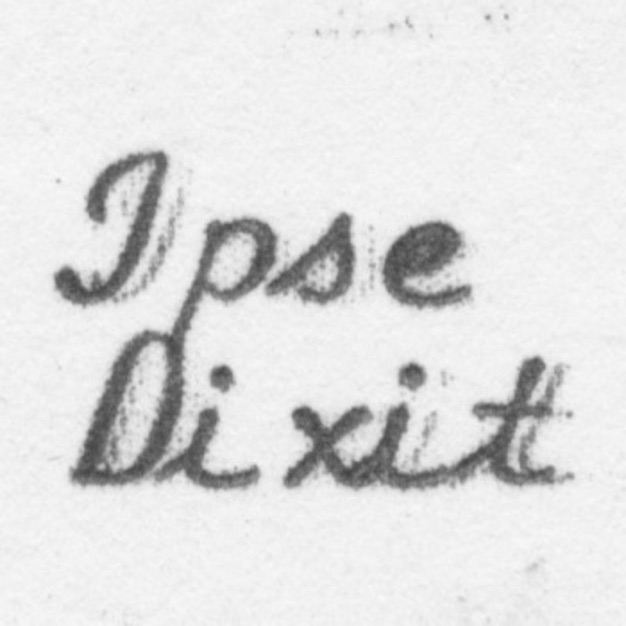 Ipse Dixit
Ipse Dixit
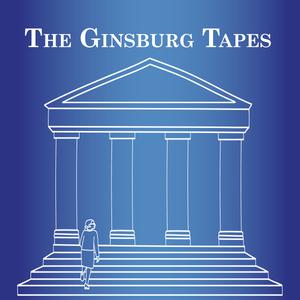 The Ginsburg Tapes
The Ginsburg Tapes
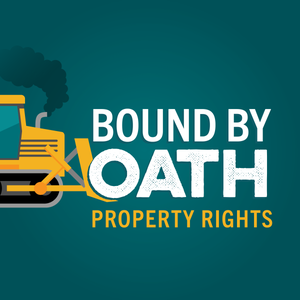 Bound By Oath by IJ
Bound By Oath by IJ
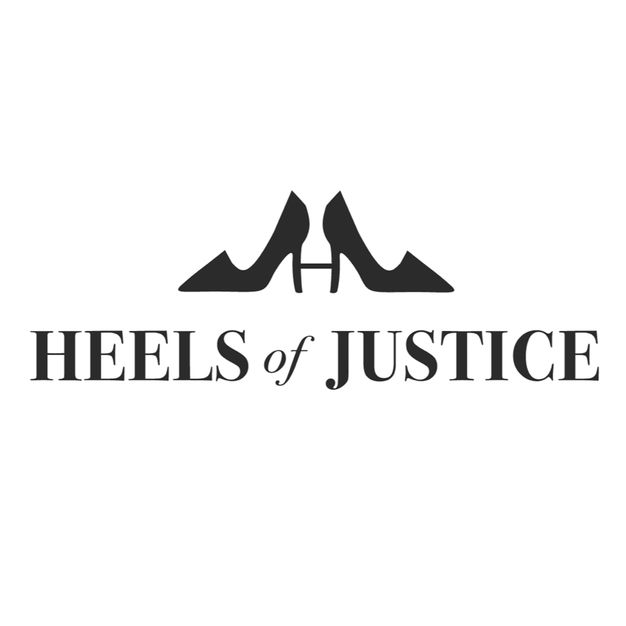 Heels of Justice
Heels of Justice
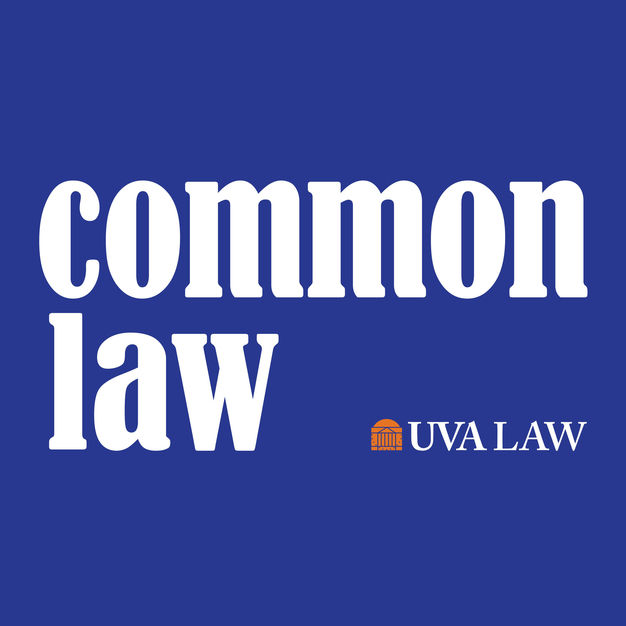 Common Law
Common Law
 SCOTUStalk
SCOTUStalk